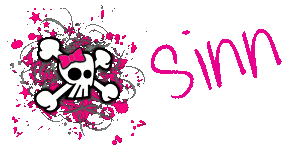 Title: Hammer of Thor
Title: Hammer of ThorAuthor: S. Evan Townsend
Genre: Urban fantasy/historical fantasy
Pages: Oversize paperback, 376
Published: 2011
Opening Lines: "I stood erect despite my fatigue, sweat forming a puddle in the small of my back, running down into my eyes, beading on my arms. I was breathing hard, sucking in the cool air, and grinning from ear to ear."
"They live among us. We know they are there. No government can stop them. Some are evil. Some are good. All are powerful. They inhabit our myths and fairy tales. But what if they were real, the witches, wizards, and fairy godmothers? What if they were called "adepts" and used talismans to increase their power? The most powerful talisman in the world is The Hammer of Thor and Hitler stole it from its rightful owners, the Valkyrie. When American adept Francis Kader is reluctantly drawn into the effort to retrieve the Hammer from the Nazis, he begins a journey that leads him to a confrontation with Thor himself. Can a mere human hope to defeat an immortal god?
~ Jacket copy
Thoughts: I keep coming back to this trying to compose my thoughts, but everything is just jumbled. I guess, to start, I don't like Kader. While it seems to be his character -- and maybe the author's attempt to show the adepts feelings towards "lesssers" -- I found Kader to be extremely arrogant, an unsympathetic character, and an asshole. If the author really was trying to show the contempt adepts felt towards "lessers," I think he did an excellent job in Kader. That being said, Kader is a very strong character, well thought- and fleshed-out, and realistic. Even though I found him to be unsympathetic, I could easily see him a a real person. Of course, the rich landscape of the book also helped with this.
I don't know much about 1930s, 40s, or 50s San Francisco, England, France, Korea, Japan, Iceland, or Norway, but it was evident that the author did his research! He was able to paint a very rich picture of the landscape, culture, and the turbulent times.
The concept of adepts and the originals coming from Atlantis was a very neat idea! However, I wish he would have spent a little more time exploring that. In addition, the use of talismans to enhance pre-existing talent is something I really haven't seen before. The concept that an object, given enough time and proper stimulation, could become a talisman really made it more interesting. I liked the fact that Kader's letter from Meyoung held the potential to become a talisman.
The thing that caught me was the author's knowledge of Japanese. I studied Japanese as my foreign language at the University, so I was happy to see that the author appeared to take the time to understand the language and culture. I especially liked how he showed the Yakuza. I caught myself smiling when the Japanese lady said, "biiru"! It brought back fond memories of silly times in my class!
My biggest problem with the book is that it felt as though it just drug on. While I really enjoyed the story, at times I felt really bogged down in the details. However, since the book spans many years, that could contribute to the boggy feeling. Further, with a name like Hammer of Thor, I was sad that he didn't play a bigger role in the book. I found myself frustrated that he doesn't enter until about page 340 or so. Having a little more Nazi Germany would have also added another element to the book. Since the Nazi regime under Hitler has long since been known for their interest in the mystical, it would have been nice to see this side of the novel fleshed out. Even though I was bogged down in the details, I also felt like the book rushed through a lot of things. In some ways, the name and swastika on the front of the book is almost a misnomer.
That being said, I did enjoy the book. The author definitely spent a lot of time writing the book, fleshing out Kader, and the spaces where the book takes place. It is apparent that this is the author's first book, and I am very curious to see where he goes with the series and how he matures as an author.
Rating: ☆ ☆ ☆
Currently: The Lady of the Rivers by Phillipa Gregory and Ghost Trackers by Jason Hawes and Grant Wilson
Current Pages: 22318
Current Progress:
62/50 books
Interview with author S. Evan Townsend
1. How did you start writing?
I can't remember a time I didn't want to be a writer except maybe when I was five and wanted to be a fireman. I started writing when I was 12 and taught myself to type (on a typewriter) using my sister's typing manual from school. I've been writing ever since so that's going on 40 years.
2. What was the inspiration behind the novel?
Hammer of Thor had a complicated beginning. I'd written a short story set in the near future with fantasy elements in it (something I'd never done before). It was there I developed the "adept" universe. It was about a wizard (or as I call them, "adept") who uses technology to fool another wizard. And I remember I was doing my two-mile walk and was thinking about World War II and I suddenly had the idea of putting these adepts into World War II. How would they handle the threat of fascism? And the story grew from there into a full-blown novel that covers 18 years from the early Depression to the Korean War.
3. I've always been interested in Nazi Germany and Norse mythology, so this was a clever mix. Why did you decide to tackles these two beasts in one book?
You never know when inspiration is going to come. Originally the book was going to be about World War II alone and that brought in the Nazis (First outlines it was going to be the Japanese but I found information about Nazis easier to come by than about Imperial Japan). But when I started writing Kader’s history (as I do when I develop major characters) I thought, “This would make a good beginnings of a story” and decided to add it to Hammer of Thor and decided on an ending. When I decided to bring the Valkyrie into the novel, that dipped my toe into Norse mythology. And it sort of snow-balled from there. As I did research on Norse mythology, I decided to have a Norse god as Kader’s ultimate enemy.
4. How much research did you have to do in order to prepare yourself to write this book?
A lot. I read a book on Norse mythology, a book on the Korean war, two books (fiction) about Korea during the Japanese colonial days, a book on Korean history (I was just going to read the parts pertaining to this novel but found it so interesting I read the whole thing), and did a lot of internet searches on the Nazis and mysticism. I’ve also, thanks to my father, have seen every World War II movie ever made. I found an oral history from a B-24 crewmember and that help describe Kader’s trip to England. I talked to a cousin of my father who was stationed in Japan during the Korean War and he gave me ideas for those scenes.
5. What was your favorite part of the book?
My favorite part of the book is the air chase over a fog-enshrouded San Francisco in Chapter Sixteen. It was a challenge to write because I didn’t know what buildings would stick out of the fog. I found a website that listed buildings’ age and height so I figured out which ones would have been around in 1943. But San Francisco is hilly so I had to find out what elevation the buildings’ bases were at. I found a topographical map of downtown San Francisco and used it to figure out the elevation and added in the height of the building to get the height of it over sea level (I used a spreadsheet to keep it all straight). Then I knew which buildings would protrude from the fog bank and where approximately they were. I used that information in writing the scene. The reader probably doesn’t know how much work I put into trying to make that scene accurate, but I think it paid off. Plus it’s was just a fun scene to write with lots of action. Where else to you get to write about a chase between a woman on a big black bird and a man on a flying carpet over a modern city?
6. What was the hardest part to write in the book?
The climax. It took me six months to come up with the climactic scene. Usually when I can’t write a scene, it’s because subconsciously I know there’s something wrong with it. Then I realized what the problem was: my protagonist was going to stand by and watch it happen. When I figured out how to make him part of the action, it finally worked for me. But still, I’d set him up with an almost insurmountable task. When I came up with the solution, I was finally able to finish the scene. The other difficult scene for me to write (but for other reasons) was the love scene in Chapter One. I wanted it to be sweet but not trite. I’m not sure I accomplished that.
7. What did you wish was different about the book?
I wish I could have traveled to Iceland to get it absolutely accurate. I had to use the internet and magazine articles to get the feeling of Iceland. One thing I’m torn about in the book is because it’s set in the first half of the 20th century, it’s not very politically correct. The language and the prejudices of the characters, including the hero, might grate on modern sensibilities. But I decided to be accurate with language and attitudes.
8. What are your favorite authors/books? How did they inspire you to become a writer?
My favorite author is Robert Heinlein. He was primarily a science fiction writer but did write some fantasy. When I first read his books (and I inhaled them in about a three year period, only slowed by not being able to find them), I thought, “If I could only write this well.” It became my goal to try and write as well as Heinlein (I’m sure I don’t, still). I read that he would type out his manuscript once (he did most of his writing before computers), go through it and slash out what he thought was unneeded, type it up again, and send it to the publisher. Think about that. It had to be spelled correctly, punctuated correctly, and have no typos. All that plus they were invariably great stories. His novel, The Moon is a Harsh Mistress is still my favorite. My other favorite write if Poul Anderson. He was more varied and prolific than Heinlein. I’m still trying to get through his oeuvre. His Flandry stories and novels are great fun escapism but still intelligently written. Reading great writers inspires me to write and become a better writer. Sort of like a runner beating a personal best because he was trying to keep up with a faster rival.
9. If you could have dinner with one person, dead or alive, who would it be and why?
I’ve always admired George Washington. In reading biographies of him, you find out he was not only a brilliant soldier, statesman, and politician, but he loved a good joke and was quite flirtatious with the women who were happy to chat with a national hero. We all have this idea he was rather dour because of his portraits. But his artificial teeth were probably killing him (they weren’t wood, by the way). I think it would be fascinating to talk with him about the Revolution and the formation of the country.
10. What advice do you have for someone who would like to become a published writer?
Never give up. I’ve been trying to get published since I was in my 20s. I’m now 51 and a published author. As someone said, “What do you call a writer who never gives up? Published.” And while writing is a solitary, introverted activity, be sure to keep up with your friends and your friends’ friends, and co-workers and anyone else. You never know who might know someone. But perseverance will separate you from the herd.






















No comments:
Post a Comment
I comment in the thread. Please subscribe to receive my comments and the things other awesome people have to say ^_^